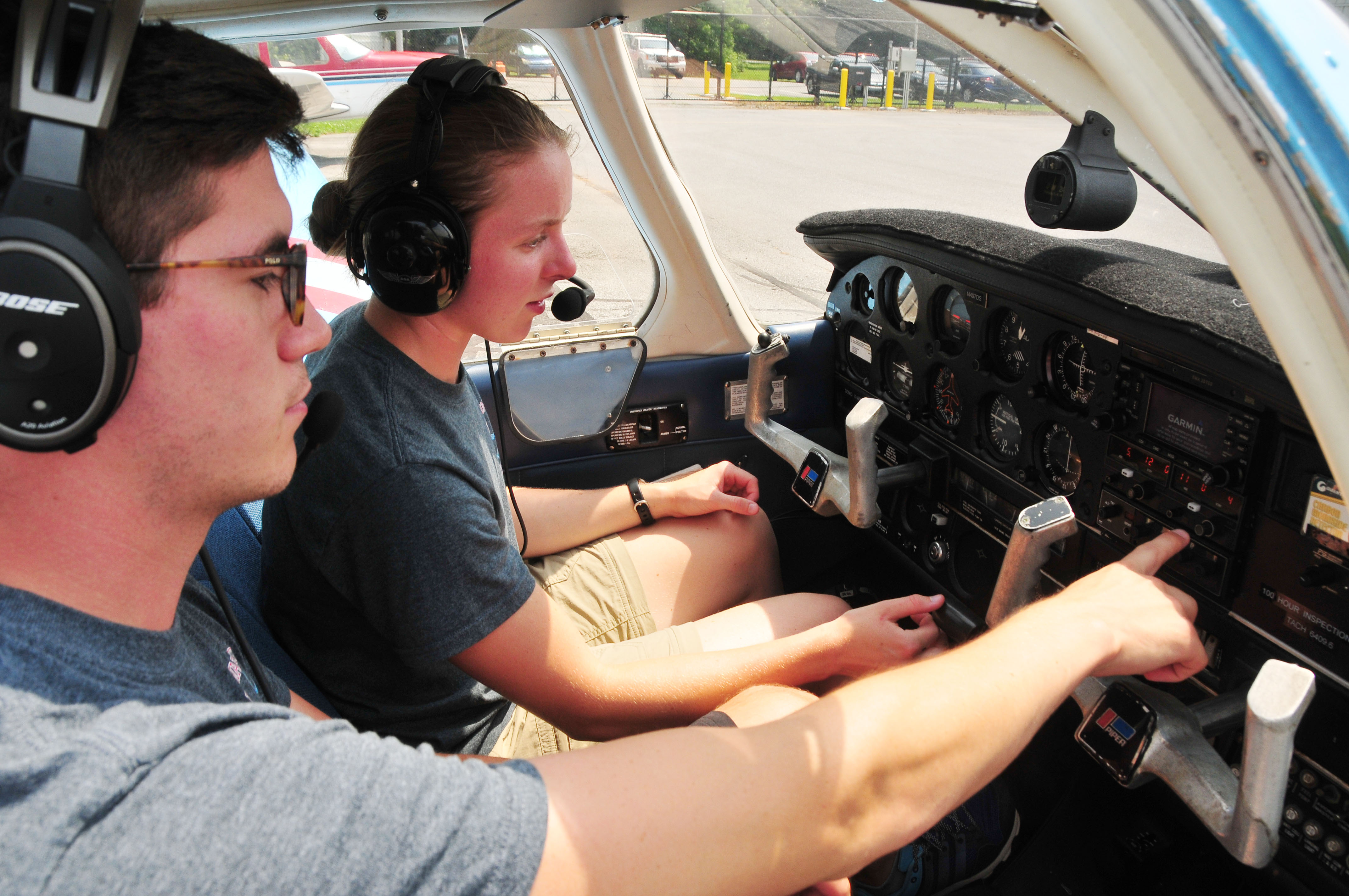
Civil Air Patrol Cadets Receive DSU Aviation Flight Training
The Civil Air Patrol (CAP) has enlisted the DSU Aviation Program to provide flight training to a group of its young cadets.
The DSU aviation training – which is taking place from June 27 to Aug. 2 at the Delaware Airpark near Cheswold – is a pilot summer program for the CAP in which its cadets are receiving 49 flying hours as well as some ground instruction.
Lt. Col Michael Hales, DSU Aviation Program director, said the CAP contacted DSU along with other flight training programs, but DSU was the only one that could do it during the summer months.
“CAP has been trying for a long time to get more students into aviation,” Lt. Col Hales said. “They were able to find some private money and some Air Force funding to offer scholarships to the cadets.”
The five cadets in training are: Cadet Maj. Wyatt Hartman of Sparrow Point, Md.; Cadet Capt. Erin Dundas of Rutland, Vt.; Cadet 1st Lt. James D. Kidd of Southwest Ranches, Fla.; as well as two brothers, Cadet 2nd Lt. Duncan Campbell and Cadet 2nd Lt. Riley D. Campbell, both of Frederick, Md.
The DSU aviation director said the five students are highly motivated. “All of them came here with 8-10 flying hours,” he said. “One of them already has his helicopter certification, two have glider ratings, and all have already passed the FAA written exam.”
Ms. Dundas, age 20, she is grateful for the training opportunity at DSU. “With this program, I can get my private pilot license a lot quicker,” she said. “I would like to be able to do search and rescue.”
Lt. Col. Leslie Vazquez, CAP’s aviation liaison who oversees the program, said he is proud of the first class of CAP pilots to receive scholarship and training. “We hope it will be just the first of many future classes to get such a chance,” he said.

